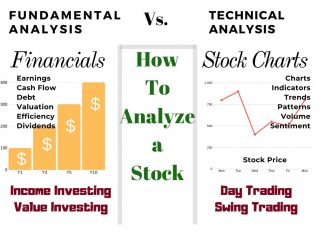If the idea of investing in the stock exchange terrifies you, you are not alone. People with very limited experience in stock investing are either terrified by horror stories of the typical financier losing 50% of their portfolio valuefor example, in the two bearishness that have already happened in this millennium or are beguiled by "hot tips" that bear the promise of big benefits but rarely settle.
The reality is that purchasing the stock exchange carries danger, but when approached in a disciplined manner, it is among the most efficient ways to build up one's net worth. While the value of one's house normally represents the majority of the net worth of the average individual, many of the affluent and really rich generally have the bulk of their wealth purchased stocks.

Key Takeaways Stocks, or shares of a company, represent ownership equity in the firm, which provide investors voting rights in addition to a residual claim on corporate revenues in the type of capital gains and dividends. Stock markets are where private and institutional financiers come together to purchase and offer shares in a public venue.
For circumstances, a private or entity that owns 100,000 shares of a company with one million exceptional shares would have a 10% ownership stake in it. The majority of companies have exceptional shares that run into the millions or billions. Typical and Preferred Stock While there are two main kinds of stockcommon and preferredthe term "equities" is synonymous with typical shares, as their combined market worth and trading volumes are many magnitudes bigger than that of preferred shares.
Preferred shares are so called because they have choice over the typical shares in a company to receive dividends in addition to possessions in case of a liquidation. Common stock can be further classified in terms of their ballot rights. While the basic facility of common shares is that they need to have equal ballot rightsone vote per share heldsome business have double or several classes of stock with different voting rights connected to each class.